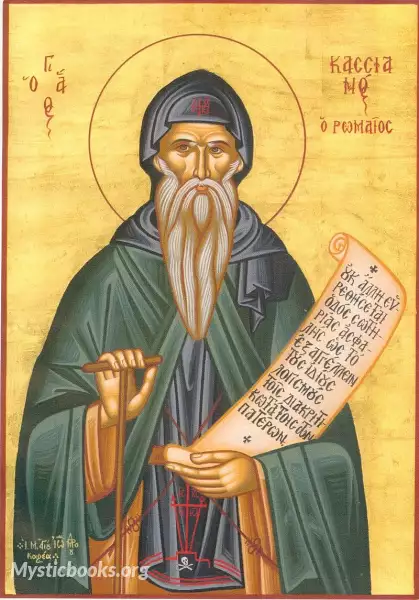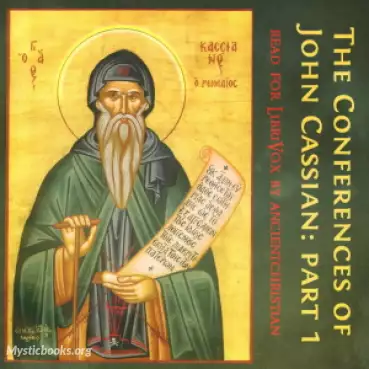
Timeline
Title
Country/Nationality
John Cassian
John Cassian, also known as John the Ascetic and John Cassian the Roman was a Christian monk and theologian celebrated in both the Western and Eastern churches for his mystical writings. Cassian is noted for his role in bringing the ideas and practices of early Christian monasticism to the medieval West.
Cassian was born around 360, most likely in the region of Scythia Minor (now Dobruja, a historical region shared today by Romania and Bulgaria), although some scholars assume a Gallic origin. The son of wealthy parents, he received a good education: his writings show the influence of Cicero and Persius. He was bilingual in Latin and Greek.
Cassian mentions having a sister in his first work, the Institutes, with whom he corresponded in his monastic life; she may have ended up with him in Marseilles.
As a young adult he traveled to Palestine with an older friend Germanus, with whom he would spend much of the next twenty-five years. There they entered a hermitage near Bethlehem. After remaining in that community for about three years, they journeyed to the desert of Scete in Egypt, which was rent by Christian struggles. There they visited a number of monastic foundations.
Approximately fifteen years later, about 399, Cassian and Germanus faced the Anthropomorphic controversy provoked in letter form by Theophilus, Archbishop of Alexandria. Cassian noted that the majority of the monks received the message of their patriarch "with bitterness", and charged Theophilus with heresy for impugning the plain teaching of scripture. Following an unsuccessful journey to Alexandria to protest the matter, Cassian and Germanus fled with about 300 other Origenist monks. Cassian and Germanus went to Constantinople, where they appealed to the Patriarch of Constantinople, John Chrysostom, for protection. Cassian was ordained a deacon and became a member of the clergy attached to the patriarch while the struggles with the imperial family ensued. When the patriarch was forced into exile from Constantinople in 404, the Latin-speaking Cassian was sent to Rome to plead his cause before Pope Innocent I.
While he was in Rome, Cassian accepted the invitation to found an Egyptian-style monastery in southern Gaul, near Marseilles. He may also have spent time as a priest in Antioch between 404 and 415. In any case, he arrived in Marseilles around 415. His foundation, the Abbey of St Victor, was a complex of monasteries for both men and women, one of the first such institutes in the West, and served as a model for later monastic development.
Cassian's achievements and writings influenced Benedict of Nursia, who incorporated many of the principles into his monastic rule, and recommended to his own monks that they read the works of Cassian. Since Benedict's rule is still followed by Benedictine, Cistercian, and Trappist monks, John Cassian's thought still exercises influence over the spiritual lives of thousands of men and women in the Latin Church.
Cassian died in 435 at Marseille.
Books by John Cassian

The Conferences of John Cassian (Part I)
The Conferences were written by John Cassian at the request of Pope Leo. They document the conversations that Cassian had with the elders living in Scetis (the desert of Egypt), and about principles of the spiritual and ascetic life. The work would g...